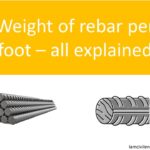Do you have a project coming up that requires electrical terminal connectors? Well, choosing the right one can be trickier than you might think! It’s not just about picking any connector that fits.
Several factors need your attention – from the type and size to the material and current rating. It’s easy to overlook these details and make common mistakes.
But don’t worry, we’re here to help you navigate through this process and make the best choice for your project. Let’s dive in, shall we?

Not Knowing the Different Types of Connectors
Did you know that there are different types of terminal connectors for different purposes? It’s crucial to understand the differences between them so you can choose the right one for your application.
Here are some common types of connectors and their uses:
Ring Terminals
These have a circular hole that allows you to connect a wire to a stud or bolt. They are commonly used in automotive and marine applications.
Spade Terminals
Similar to ring terminals, spade terminals have a flat and broad surface with a hole for connection. They are popular in household appliances and audio systems.
Butt Connectors
These are used to connect two wires end-to-end without any exposed metal. They are commonly used for low-current applications such as automotive and marine wiring.
Bullet Connectors
As the name suggests, bullet connectors have a bullet-shaped end. They allow easy connection and disconnection. They are commonly used in automotive and motorcycle wiring.
Like Us on Facebook!
Not Checking Compatibility
Before choosing connectors, it’s crucial to ensure compatibility with your equipment. You need to consider different factors. This includes wire gauges, insulation materials, and the types of terminal blocks or devices it will be connecting to.
Subscribe Us on YouTube!
Connector selection pitfalls can lead to loose connections. It can also lead to overheating and even electrical fires.
Not Considering Size and Current Ratings
Size matters when it comes to connectors. A terminal connector that is too small for your application can overheat and cause damage. A connector that is too large can take up unnecessary space and add weight to your equipment.
Along with size, you also need to consider the current rating of the connector. Different connectors have different maximum current-carrying capacities. It’s essential to choose one that can handle the amount of electricity required for your application.
Ignoring the Environment
Harsh environments with extreme temperatures may require connectors made with special materials. Ignoring the environmental conditions can lead to premature failure and unreliable connections.
Neglecting Professional Advice
It’s possible to select and install terminal connectors on your own. However, neglecting professional advice can lead to common mistakes.
Professionals in the field like White Electric have the expertise and experience. They can guide you in choosing the right connectors for your specific needs. They can also provide valuable tips on proper installation and preventive maintenance.
Not Prioritizing Safety Standards
Safety should never be compromised when choosing connectors. Always ensure that the connectors are certified by recognized standards organizations.
Don’t Make These Errors With Electrical Terminal Connectors
Choosing the right electrical terminal connectors is a task that requires careful consideration. So avoid the common mistakes above. Each of these factors plays a critical role in ensuring that your project runs smoothly and safely.
Always remember that taking the time to make the right choices in the beginning can save you from potential issues down the line. So don’t take any shortcuts, and always prioritize safety when it comes to electrical terminal connectors.
Did you find this article on connector selection mistakes helpful? If so, check out the rest of our site for more.




















